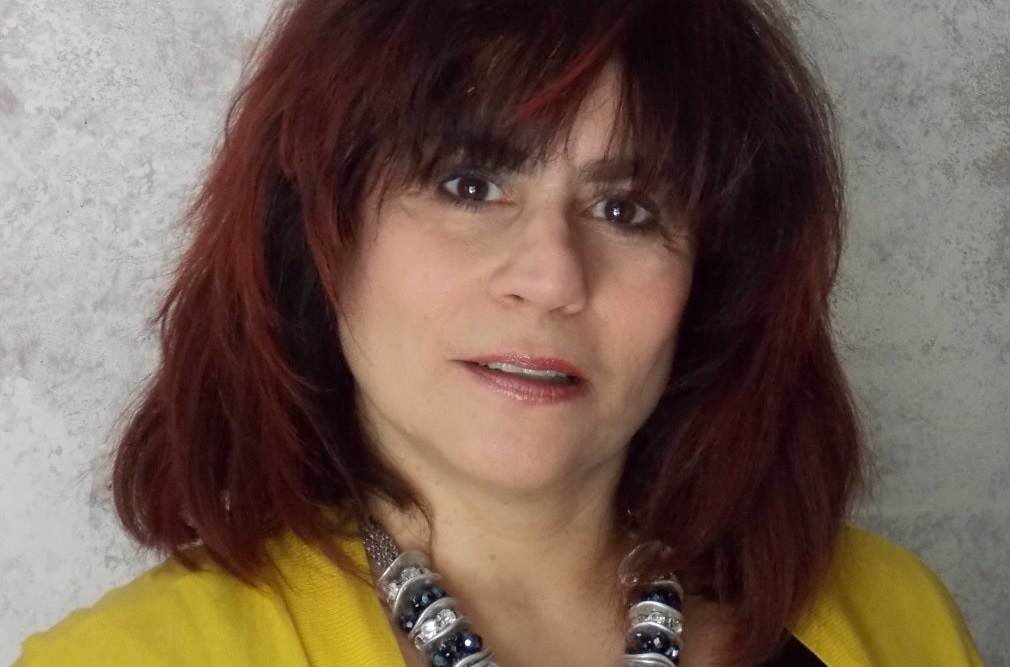
By: Dove
Even if you planned and had all the answers and resources to fulfill your dream of becoming a parent through adoption, chances are you may not be prepared for the changes that will really take place in your family and every day life patterns once a child is in your home. Adoption expert, life coach and author Regina Radomski knows all too well that entering into the process without some real support can be mind boggling.
Stemming from experience with her own children and two sons she adopted from Poland, Regina is sharing some valuable lessons, particularly on taking in older children, with the masses as an Adoption Transition Expert. We took some time out with this generous entrepreneur to find out more about her motivation and the great love she has for building families up through her work.
Since you adopted kids into your own family, what were some of the biggest lessons you learned about the adoption process?
Regina Radomski: Once we got the boys home, we realized that even though we were already parents, we were not prepared for everything that was to come. Adopting older children, five and seven years old at the time, provided a unique set of challenges.
For instance, we immediately had to deal with a language barrier. In addition, the boys had a past history of trauma and neglect. Before we could even begin bonding as a new, enlarged family, we first had to pick up the pieces from their previous life and deal with those issues. As a result, the boys were emotionally and physically delayed. To deal with these challenges, I strongly suggest having an older adoptee repeat a grade in school.
Secondly, I wish I had been more prepared and knew some methods to streamline my household duties; much of my stress would have been eliminated if I had known beforehand how to clean up the kitchen counters quickly, been more organized when getting the kids out the door in the morning, making school lunches more efficiently. Those things alone would have helped me transition so much easier.
I have now created a program outlining techniques to help other adoptive parents maintain a less stressful home life. All programs can be found on my website.
You mention on your website how you made it through your adoption with a “makeshift” support group. Do you feel having people outside of your family to lean on for support was beneficial?
RR: Yes, I do. I can only speak for myself, but I believe a support group plays a vital part in helping moms, or the main caregiver, handle specific situations. Everyone needs support when it comes to adoption. This is a challenge you simply can’t do alone. The adage “It takes a village” really comes into play in the adoption scenario.
Without my family and friends, I wouldn’t have had the courage to move forward. Within my community, people I knew before the adoption as well as people I met afterward were very supportive—whether it was through a kind comment about the kids while I was on the sideline at one of their games, or bags of clothes left off on my front porch.
Your adopted kids have been in your family now for nearly a decade. Do you still deal with answering questions for them about the who, how and why of their lives? How important has it been for you to either give to or withhold information from your kids?
RR: My boys knew their family before they left Poland, and have recently connected with them on Facebook. These days, social media provides a vehicle for people to find each other like no other time in history, making a closed adoption, in a way, a thing of the past. The boys feel good about staying in touch and it hasn’t caused us any issues to date.
What are some of the biggest questions people have when they come to you for adoption transition services?
RR: Because this transition is so monumental for everyone involved, and no family goes through it quite the same, the questions vary. Sometimes it isn’t even a question that starts as a plea for help; it is just the overwhelming changes they see happening in their household that brings them to me.
Yet, if I were to pinpoint the main thought pattern that sparks interest in getting help, it would be something like: “How do I get normalcy in my home when everything is in such a chaotic state?”
Do you have a success story you can share about an adoption process that was offbeat or difficult that you helped to transition to a happy ending?
RR: Much of my success thus far has been from my simply being there to listen and ensure people that I understand the challenges they are facing. I know where they are coming from, and I have some answers on how to move forward, based on my own experiences and resources I relied on, such as Total Transformation.
My book From Half to Whole: A Journey to Overcome the Battle Scars of Adoption and Living to Tell About It, has also been a comfort to people, just in the fact that they learn they are not alone on this journey.
I believe, however, that my most recent venture will be even more beneficial to adoptive parents. A firm believer that nutritional deficiencies plays a huge role in behavioral problems, I recently partnered with Karen Marino, a certified nutritionist and Spectracell representative from New York. Relying on this specialized blood work, we will be able to determine if a child has any nutritional deficiencies, and then be able to customize a specific cocktail of vitamins to address behavioral or emotional issues.
There is such an unknown when it comes to the genetic makeup and environmental issues within the children’s home countries. This testing will help to treat each child specifically based on their genetic makeup.
How do you market a business like adoption transition? Do agencies refer you, or do couples recommend you word of mouth? What has worked best for you?
RR: Right now I am marketing myself in many different ways, through book signings, talks at Meetup groups and book clubs, and blogging for EmpoweringParents.com. In the past, I have done radio shows and written articles for a few adoption magazines, including Adoption Today. I am also a contributing author in an ebook that Adoption.com will be publishing in the next few months.
For many years I was a PAPA (Polish Adoptive Parents Association) chapter coordinator, and word about my book, blog, radio shows, and some of my latest initiatives has spread. I am very excited about what the future will bring.
If you could go back in time to meet yourself before you adopted your children, what advice would you give yourself prior to the adoption?
RR: What advice would I give my prior self? I guess I would have to say, “Stay calm.” That was the hardest thing for me to learn. I was much calmer before adoption, and I lost it. At first I became a perfectionist, feeling as though the boys needed that to learn how to exist in our society. That was a tough habit to break. When I realized I simply couldn’t do it all, I became stressed.
I realized I needed to find ways to ease my anxiety. It simply wasn’t healthy for any of us. I have gotten better, but I am not perfect, that’s for sure. Writing my book was great therapy and it helped me to see a lot of things from a different perspective. At the end of every chapter, I wrote a segment called “What I have taken away from this…”
Here’s an excerpt from the end of Chapter Two:
What I have taken away from this . . .
When you are down and feel like you can’t get up, stop, take a breath, and move forward one step at a time. Don’t think about forever. Keep focused on the moment, and when you feel overwhelmed, think of the words to the song “Pick Yourself Up” by Frank Sinatra: “Pick yourself up, dust yourself off, and start all over again.”
What do you want people to know most about you at this stage of your life and career?
RR: Now that our lives are more in control, I have embarked on a new journey. I have become an author and a life coach, and I am very proud of the programs I have put together for the pre- and post-adoptive parent.
Now being an Adoption Transition Expert and owning my own company, Fillin’ the Blanks, LLC, I am honored to help parents with the challenges of blending families through adoption. This is something new in the adoption world, and I’ve worked very hard to encompass components new parents will need so they can continue to build consistent stability.
Where can we find you online to get more information?
RR: You can find me at ReginaRadomski.com. There, you will see additional ways to reach out to me—by phone, email, or consultation. I also offer a special report, “My 8 Rules for Success” when blending families in adoption. You will see the link to request that on the sidebar. Also, you can follow Fillin’ the Blanks on Facebook, and I also have a private Facebook Group called “Conquering Adoption.” Once you ask to join, we will accept your request.
Follow Regina on Twitter @FillTheBlanks1 and find out more about her work at ReginaRadomski.com
